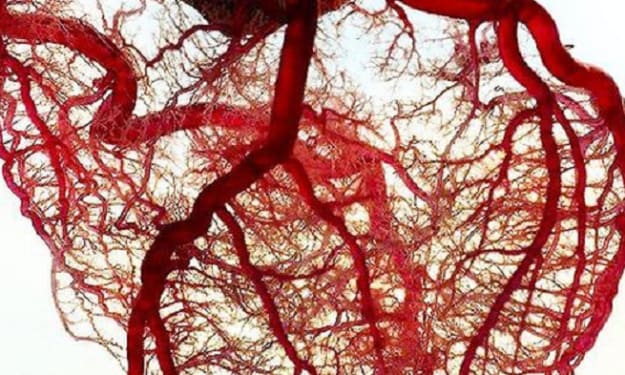Tackling Cancer
Breast Cancer Awareness and Prevention

Breast cancer has been a significant focus of medical research and public health efforts throughout the 21st century. Here’s an overview of some key developments and milestones in the history of breast cancer during this period recorded early Advances in Genomic Research and Screening. The completion of the Human Genome Project in 2003 paved the way for a deeper understanding of the genetic basis of breast cancer.
Researchers identified specific gene mutations, such as BRCA1 and BRCA2, which significantly increase the risk of developing breast cancer.
Genetic testing became more accessible and helped identify individuals with a high genetic predisposition to the disease, enabling proactive interventions.
Improved Imaging and Diagnosis: Digital mammography and computer-aided detection (CAD) systems became more widely available, enhancing the accuracy of breast cancer detection.
Magnetic resonance imaging (MRI) and ultrasound techniques further improved imaging and diagnostic capabilities, particularly for women with dense breast tissue.
Advancements in Treatment Approaches: Targeted therapies revolutionized breast cancer treatment. The development of drugs like trastuzumab (Herceptin) and lapatinib (Tykerb) specifically targeted tumors overexpressing the HER2 protein, leading to improved outcomes for HER2-positive breast cancer patients.
The Introduction of aromatase inhibitors (such as anastrozole, letrozole, and exemestane) provided an alternative to tamoxifen for postmenopausal women with hormone receptor-positive breast cancer.
Immunotherapy, including immune checkpoint inhibitors like pembrolizumab, began to show promise in treating certain types of breast cancer.
Personalized Medicine and Precision Oncology: Advances in genomic profiling allowed for a better understanding of the unique characteristics of individual tumors, leading to the development of targeted therapies and personalized treatment plans.
Liquid biopsies, which analyze tumor DNA circulating in the blood, emerged as a non-invasive method to monitor treatment response and detect early signs of recurrence.
Awareness and Advocacy: Breast cancer awareness campaigns continued to play a vital role in educating the public about early detection, risk factors, and the importance of regular screenings.
Survivorship and patient advocacy movements gained momentum, emphasizing the importance of support networks, holistic care, and addressing the psychosocial impacts of breast cancer.
Research and Clinical Trials: Numerous clinical trials explored innovative approaches, including new drug combinations, immunotherapies, targeted therapies, and novel surgical techniques.
The inclusion of diverse populations and addressing health disparities became a priority, aiming to ensure that all individuals have equitable access to quality breast cancer care.
Tackling breast cancer involves a multi-faceted approach that includes prevention, early detection, accurate diagnosis, and effective treatment. Here are some key steps in tackling breast cancer:
Self-Examination and Awareness: Perform regular breast self-examinations to become familiar with your breasts and detect any changes. Consult a healthcare professional to learn the correct technique.
Be aware of the signs and symptoms of breast cancer, such as a lump, changes in breast size or shape, skin dimpling, nipple discharge, or persistent breast pain.
Regular Clinical Examinations: Schedule regular clinical breast examinations with your healthcare provider. They can help detect any abnormalities or changes that may require further investigation.
Mammography and Screening: Follow recommended guidelines for breast cancer screening based on your age and risk factors. Mammograms are commonly used for breast cancer screening and can help detect cancer in its early stages, even before symptoms appear.
Discuss with your doctor to determine the appropriate screening schedule for you.
Genetic Counseling and Testing: If you have a family history of breast cancer or other risk factors, consider genetic counseling and testing. These services can help assess your risk and guide preventive measures or early interventions.
Healthy Lifestyle Choices: Adopt a healthy lifestyle that includes regular exercise, a balanced diet, and maintaining a healthy weight. Research suggests that a healthy lifestyle can reduce the risk of developing breast cancer.
Limit Alcohol Consumption: Limit your alcohol intake or avoid it altogether. Studies have shown that excessive alcohol consumption can increase the risk of developing breast cancer.
Hormone Replacement Therapy (HRT): If you’re considering hormone replacement therapy to manage menopausal symptoms, discuss the potential risks and benefits with your healthcare provider. Prolonged use of certain types of HRT can increase the risk of breast cancer.
Breastfeeding: If possible, consider breastfeeding your baby. Evidence suggests that breastfeeding may have a protective effect against breast cancer.
Early Diagnosis and Treatment: If you notice any changes or abnormalities in your breasts, promptly consult your healthcare provider for further evaluation.
If diagnosed with breast cancer, work closely with your medical team to determine the most appropriate treatment plan. Treatment options may include surgery, radiation therapy, chemotherapy, targeted therapy, or hormone therapy.
Emotional and Social Support: Seek emotional support from loved ones, support groups, or counseling services. A breast cancer diagnosis can be emotionally challenging, and having a strong support network can make a significant difference in coping with the disease.
Remember, it is essential to consult with healthcare professionals for personalized guidance and recommendations regarding breast cancer prevention, early detection, and treatment.
tartriting





Comments
There are no comments for this story
Be the first to respond and start the conversation.